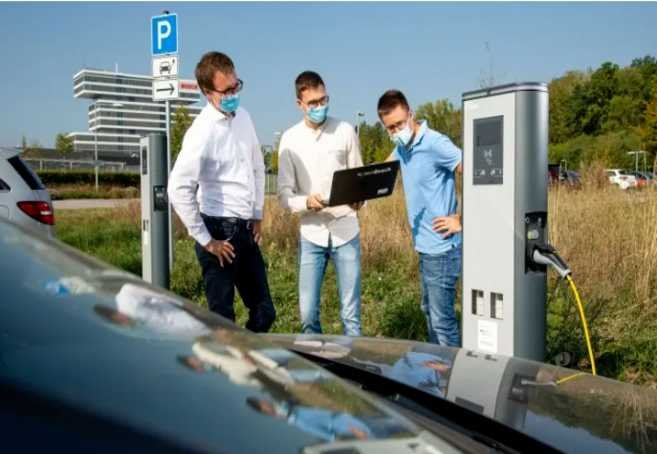What is ‘Smart Charging,’ and Why is It Necessary for Our Energy Systems?

Most people are familiar with the concept of charging their devices overnight or during the day — but what about smart charging? Smart charging is a new way of managing electricity demand that could help to ease the strain on the grid and save consumers money. In this blog post, we’ll explore what smart charging is and why our energy systems need it.
How Can Smart Charging Help to Improve Our Energy Efficiency?
Smart charging is a technology that allows electric vehicles (EVs) to be plugged into the grid and charged in a way that is coordinated with the demands of the grid. This can help to improve the overall efficiency of the energy system by reducing the need for expensive peak power generation; and by making better use of renewable energy sources. There are a number of benefits to smart charging for both EV owners and the grid. For EV owners, SC can help to reduce charging costs; as well as the time required to charge their vehicles. For the grid, SC can help to reduce congestion and improve the overall efficiency of the energy system.
There are a number of different smart charging technologies; that are being developed and a number of different ways in which they can be implemented. However, all SC technologies share a common goal; to improve the efficiency of the energy system and to reduce the cost of charging EVs.
The Benefits of Smart Charging for Electric Vehicles
Smart charging is the process of intelligently managing the charging of electric vehicles (EVs) to ensure that they are charged in the most efficient way possible. This can involve using data on energy prices, vehicle usage patterns; and renewable energy generation to optimize when and how EVs are charged. There are several benefits to SC for both EV owners and the electricity grid. For EV owners, an EV smart charge solution can help reduce their running costs by minimizing the amount of expensive peak-rate electricity they use. It can also help to maximize the use of renewable energy by charging EVs when renewable generation is high and grid demand is low.
For the electricity grid, SC can help to reduce demand during peak periods; making it easier and cheaper to meet electricity demand. SC can also help to make better use of renewable energy by storing excess renewable energy in EVs and releasing it back into the grid when needed.
Smart charging is an important part of the transition to a low-carbon energy system. By optimizing the way that EVs are charged; we can reduce the environmental impact of transportation while also saving money and making better use of renewable energy.
How Can Smart Charging Help Reduce Our Carbon Emissions?
Smart charging is a way of managing how and when electric vehicles (EVs) are charged to make the most efficient use of the available energy. It can help to reduce our carbon emissions by making sure that EVs are only charged when there is spare capacity on the electricity grid; and by making sure that they are charged using low-carbon electricity. There are a number of different ways to do SC. One way is to use smart meters and real-time pricing to charge EVs; when electricity is the cheapest and when there is spare capacity on the grid. Another way is to use vehicle-to-grid (V2G) technology; which allows EVs to provide power back to the grid when there is high demand and prices are high. This can help to balance the grid and reduce the need for expensive and polluting backup power plants.
Smart charging is an important part of the transition to a low-carbon economy; and our energy systems need it to meet our climate goals.
The Challenges of Implementing Smart Charging Solutions
Smart charging is a method of charging electric vehicles (EVs) that considers the power grid’s needs. To make the most of renewable energy sources and prevent grid overload; SC schedules EV charging times based on when energy is most available and least expensive.
However, implementing SC solutions can be complex and costly. To be effective, they require a high degree of coordination between EV owners, utilities, and other stakeholders. Additionally, SC solutions must be able to adapt to changes in the power grid and the needs of EV owners.
Despite these challenges, smart charging is essential to the future of our energy systems. As the number of EVs on the road continues to grow; SC will become increasingly important in ensuring that our power grids can meet the demands of this growing population.
The Future of Smart Charging and Its Potential Impact on Our Energy Systems
The future of smart charging is likely to be a key part of the transition to a low-carbon energy system. SC can help to optimize the use of renewable energy sources and to manage the demands of electric vehicles (EVs) on the grid. There are a number of different approaches to SC, but one common goal is to charge EVs when renewable energy sources are most available and to reduce or avoid charging when demand on the grid is high. This can help to reduce the need for grid upgrades and lower emissions.
Smart charging can also help to stabilize the grid by providing flexibility in when and how much electricity is drawn from it. This can be especially important as the share of renewable energy sources on the grid increases and as the demand for EVs fluctuates.
There are a number of challenges to implementing SC; but it is expected that the benefits will outweigh the costs in the long run. Smart charging is a key part of the transition to a low-carbon energy system, and its impact on our energy systems will be significant.
To Conclude
Smart charging is a crucial part of managing our energy resources efficiently. By optimizing how and when we charge our devices; we can help reduce stress on the grid, save money, and protect the environment.

